The Ultimate Guide to Choosing Your Perfect Golf Set for Every Skill Level
In the world of golf, choosing the right set of clubs can significantly impact both performance and enjoyment on the course. Renowned golf expert, Tom Wishon, once said, "A properly fitted golf set tailored to your skill level can transform your game." With this in mind, selecting the perfect golf set becomes not just a preference but a crucial aspect of honing your skills and enjoying the sport to the fullest.
For golfers of every skill level—from beginners just starting to learn the game to seasoned players refining their swings—the right golf set empowers them to perform at their best. Each golfer has unique needs, and understanding the nuances of different clubs, materials, and technologies can make all the difference. This guide aims to illuminate the critical factors to consider when investing in a golf set, ensuring that players can confidently choose equipment that complements their playing style.
Whether you're looking to build a comprehensive collection or simply seeking the essentials, navigating the plethora of options can be daunting. However, with the right guidance and insight, finding a golf set that feels like an extension of your own abilities is within reach. Embrace this journey, and let your perfect golf set unlock your full potential on the greens.
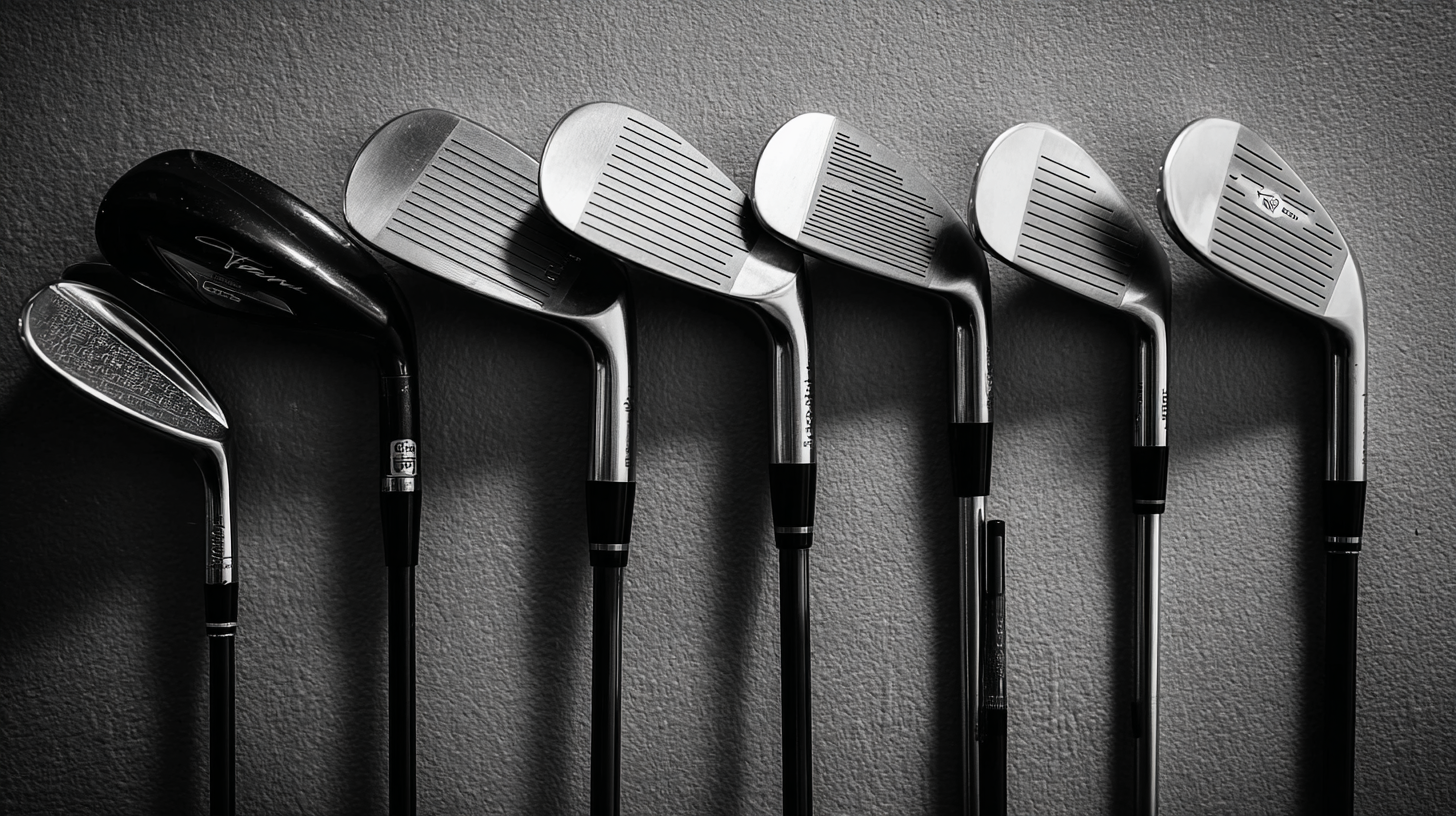
Understanding Your Skill Level: Identifying Beginner, Intermediate, and Advanced Players
 Understanding your skill level is crucial when selecting the perfect golf set. Golfers can typically be categorized into three main groups: beginners, intermediate, and advanced players.
Understanding your skill level is crucial when selecting the perfect golf set. Golfers can typically be categorized into three main groups: beginners, intermediate, and advanced players.
Beginners often struggle with consistency and have limited experience on the course. Therefore, they should consider a set that emphasizes forgiveness and ease of use. Clubs designed for beginners usually feature oversized heads and a more flexible shaft, making it simpler to achieve better results and build confidence.
Intermediate players have a grasp of fundamental techniques but may still be honing their skills. For this group, a golf set that offers a balance between forgiveness and control is ideal. These players might benefit from clubs that provide a bit more feedback, allowing them to refine their swings while still enjoying some leniency on mis-hits.
Advanced players, on the other hand, require specialized equipment tailored to their unique playing styles. They often seek clubs that allow for greater precision and customization, such as blade irons or lower-lofted drivers, which cater to their refined technique and demanding performance expectations. By recognizing which category they belong to, golfers can make informed decisions that enhance their overall experience on the course.
Key Components of a Golf Set: Essential Clubs and Their Functions Explained
When choosing the perfect golf set, understanding the key components and their functions is crucial for players of every skill level. A standard golf set typically includes a variety of clubs: drivers, irons, wedges, and putters, each serving a unique purpose on the course. The driver, known for its large head and long shaft, is designed for powerful tee shots, allowing golfers to hit the ball great distances. Irons are numbered clubs that offer versatility for mid-range shots, while wedges, with their higher lofts, are ideal for short approaches and delicate chips around the green.
Putters, often regarded as the most important club in a golfer's bag, are utilized on the greens to roll the ball into the hole. Selecting a putter that feels comfortable and suits one's playing style can significantly affect a player's performance. Additionally, many golfers may consider hybrid clubs—blending the characteristics of both irons and woods—for easier handling and improved accuracy. By comprehensively understanding these essential clubs and their functions, golfers can make informed decisions when assembling a set that matches their individual skills and enhances their overall game.
Selecting the Right Clubs: A Guide to Irons, Woods, and Putters for Your Game
When it comes to selecting the right clubs for your golf set, understanding the distinct roles of irons, woods, and putters is crucial for enhancing your game. Irons, typically numbered from 3 to 9, are designed for accuracy and control on the course. They are ideal for mid to short-range shots, allowing players to target greens with precision. Beginners might benefit from game improvement irons, which feature a larger sweet spot and are more forgiving on off-center hits.
Woods, including drivers and fairway woods, are designed for distance. The driver, often considered the most important club in your bag, enables players to achieve maximum yardage off the tee. For newcomers, choosing a driver with a larger clubhead and a more flexible shaft can facilitate a smoother swing and more consistent distance. Fairway woods serve as versatile alternatives for long shots from the fairway or rough, effectively bridging the gap between the driver and irons.
Finally, putters are essential for the game’s culmination — getting the ball into the hole. Selecting a putter that feels comfortable in your hands and matches your putting style can significantly impact your score. From blade to mallet designs, the right putter should promote confidence on the green, as making those critical putts can often determine the outcome of your round. By thoughtfully considering these clubs within your golf set, you can tailor your equipment to complement your skill level and improve your overall performance on the course.
The Ultimate Guide to Choosing Your Perfect Golf Set
This chart illustrates the typical allocation of golf club types (Irons, Woods, and Putters) that players of different skill levels (Beginner, Intermediate, and Advanced) tend to use.
Customization Options: Personalized Fitting for Enhanced Performance
When it comes to selecting the perfect golf set, customization options play a crucial role in enhancing your performance on the course. Personalized fitting ensures that the clubs you choose work harmoniously with your unique swing mechanics, body type, and playing style. By engaging with a professional fitter, you can determine the optimal shaft length, flex, lie angle, and grip size that suit your needs. This tailored approach can lead to better accuracy, distance, and overall enjoyment of the game.
Tips: Always prioritize getting fitted for your clubs, as even small adjustments can make a significant difference in your performance. Consult with experienced fitters who utilize advanced technology to analyze your swing and provide recommendations. Remember, what works for one golfer may not be suitable for another, so embrace your individuality.
Additionally, consider the flexibility of your golf set. Many brands offer customization options that allow you to mix and match clubs, ensuring you have the right tools for various scenarios on the course. Whether you're looking for a specific type of driver or a set of irons that complement your skill level, the ability to customize gives you a competitive edge, enhancing your confidence and game.
Tips: Explore demo days where you can test various clubs and get a feel for what works best for you. Don’t hesitate to ask questions during the fitting process to fully understand how each adjustment can impact your game.
Budgeting Tips: How to Choose a Golf Set That Fits Your Wallet and Goals
When it comes to purchasing a golf set, budgeting is a crucial factor that can greatly influence your decision. According to the National Golf Foundation, the average spending on golf equipment in the U.S. reaches approximately $900 per year. However, it's important to remember that quality doesn't always correlate with price. Many beginner golfers can find well-rounded sets that cater to their needs without breaking the bank, often priced between $300 to $600.

Tip: Consider buying from reputable brands that offer starter sets. These packages typically include drivers, irons, and putters specifically designed for novices, providing excellent value. Additionally, you might want to look at previous year's models, as they can yield significant savings while still delivering performance.
As your skills improve, you may be tempted to invest more heavily in personalized equipment. A 2022 report from Golf Datatech indicated that 39% of golfers opt for custom-fitted clubs after their first purchase. This choice not only enhances their game but also aligns with their long-term financial goals.
Tip: Set a budget that allows for gradual upgrades; invest in a few key clubs each season rather than splurging on a full high-end set right away. This strategy can help you avoid overwhelming expenses while still enjoying the sport as your skills progress.
Related Posts
-
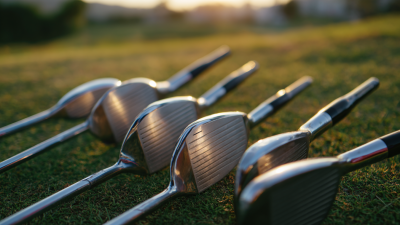
The Ultimate Guide to Choosing the Perfect Women's Golf Clubs for Every Skill Level
-
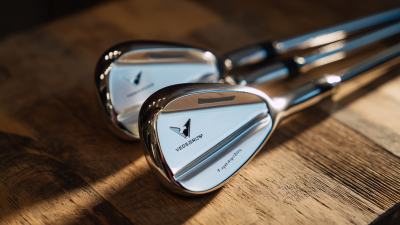
Maximize Precision: The Science Behind Wedge Set Design for Enhanced Performance in Engineering
-
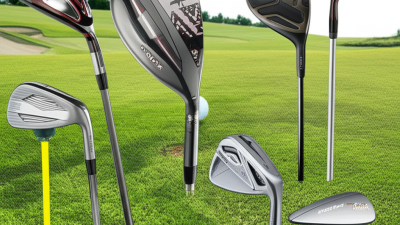
Top Picks for Beginner Junior Golf Clubs to Elevate Your Child's Game in 2024
-
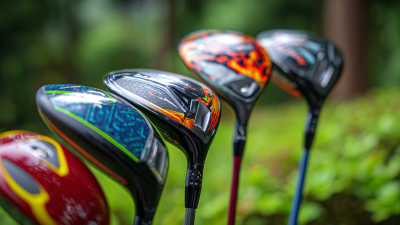
Unlock Your Potential: Top 10 Innovative Golf Gear Trends Set to Revolutionize Your Game in 2023
-

Unlocking the Joy of Golf: A Comprehensive Guide to Choosing the Best Kids Golf Clubs
-
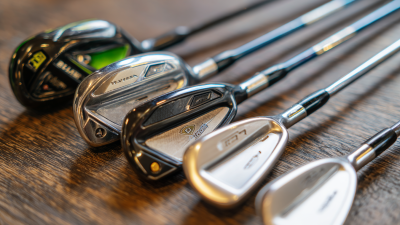
Unlocking Your Golf Potential: A Comprehensive Guide to the Best Golf Clubs for Every Skill Level

